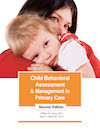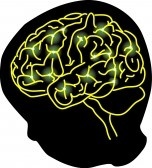 Educational Impact of Temperament
Educational Impact of Temperament
Some children are more 'teachable' than others, at least in the perception of most teachers
Temperament appears to be related to education in a number of ways, including teacher's perceptions, classroom adjustment and actual educational achievement.
Early in the study of temperament interest was already forming about how temperament affected children in school. One study showed that teachers overestimated
the intelligence of children who had 'easy' temperament characteristics, giving them a 'halo' in the teacher's eyes. Another early study showed that children
who were flexible and persistent were rated higher in school adjustment than students with poor self regulation and low task persistence.
Since then many studies have addressed this topical area. Programmatic research on temperament and education has been conducted by two researchers, Barbara
Keogh at UCLA and Roy Martin at the University of Georgia.
Much of Dr. Keogh's work focused on special educations students and how their behavioral style impacted their
learning. She found that classroom teachers perceived a temperament dimension of 'teachability' in students, and it was the most important element in predicting how well
youongsters would progress academically.
This behavioral style characteristic was related to "easy temperament" in both special education and regular education children. Other temperament categories, called
task orientation and reactivity were also related to educational functioning. Some temperamental features even predicted overall student achievement better than their scores
on tests of cognitive ability!
Roy Martin's work used teacher ratings of temperament and correlated them with classroom behavior and achievement scores. He found that low persistence,
high activity and high distractibility was negatively related to achievement in reading and math in first graders, and that Task Orientation as a factor was more
strongly related to academic achievement in 5th graders than first grade achievement scores. Thus the manner of addressing classroom work appeared to outweigh the impact of
actual school related performance!











